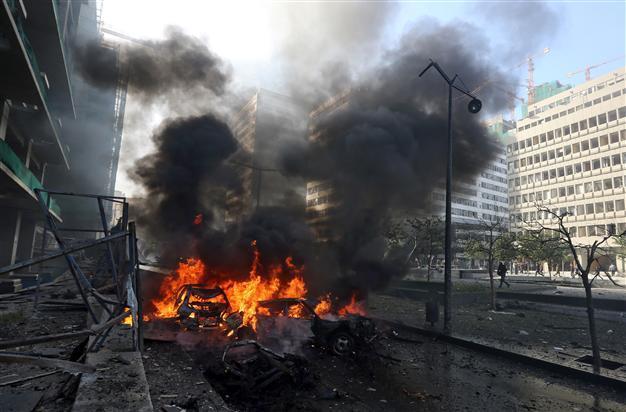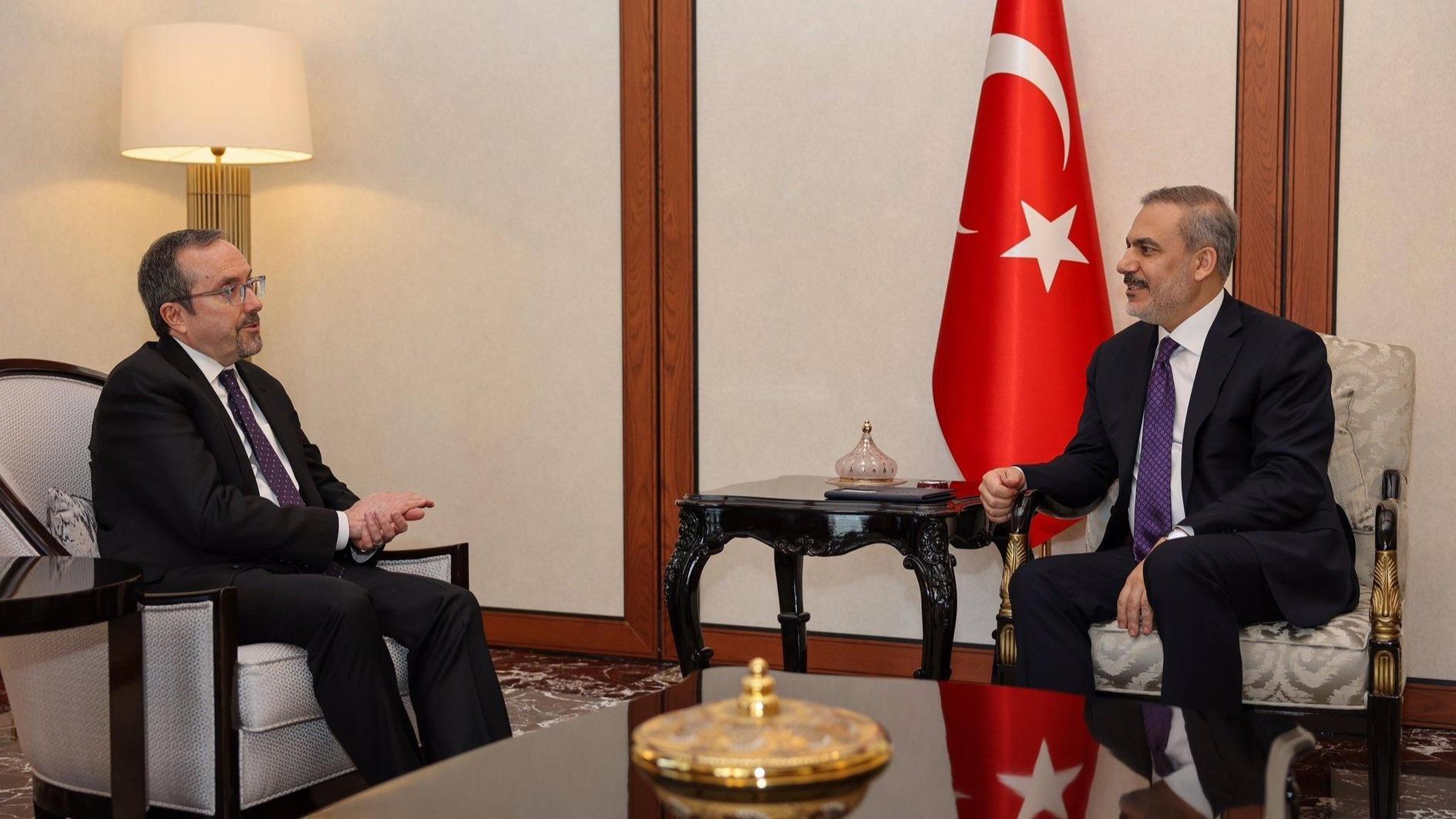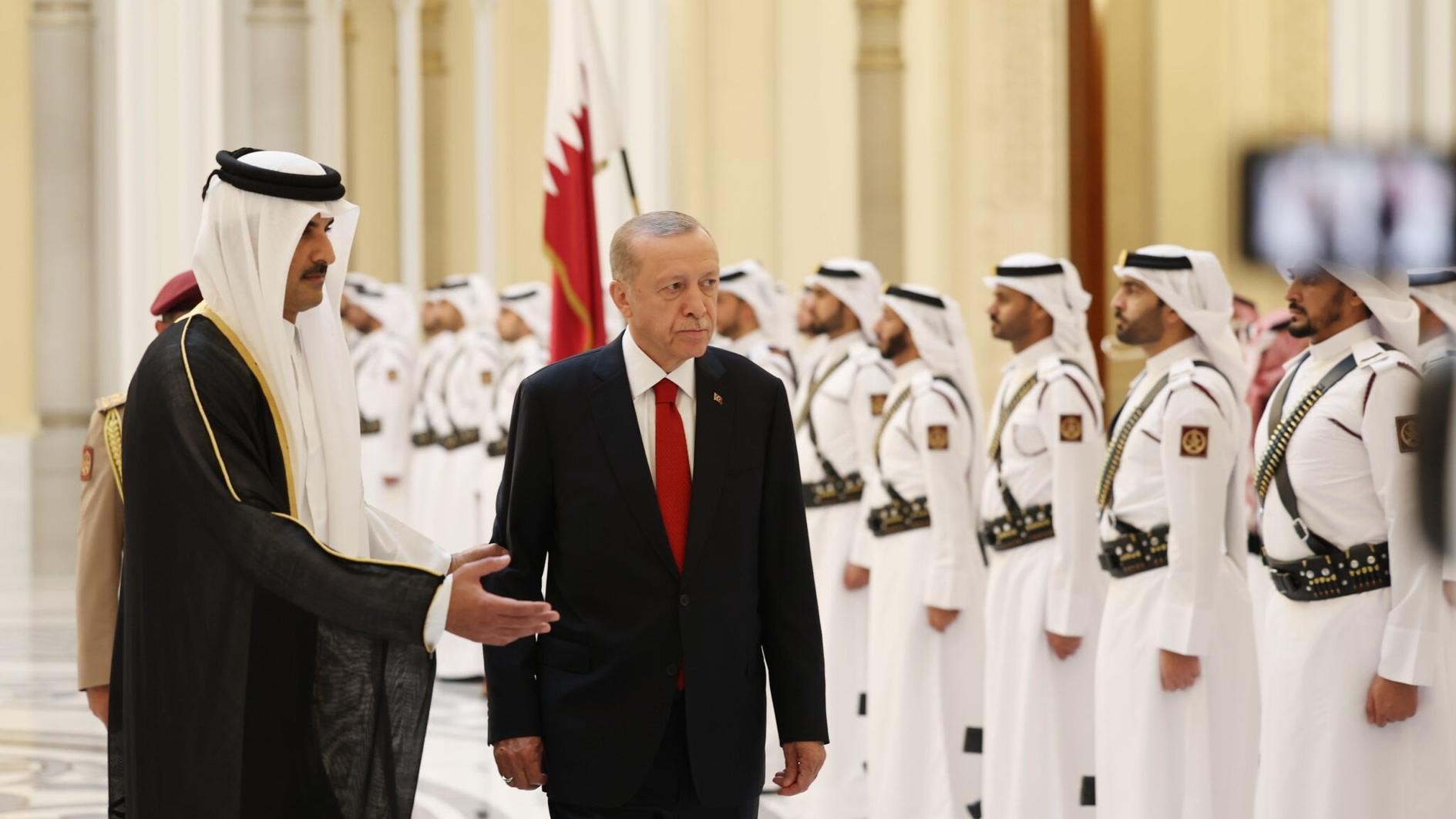Car bomb in Beirut kills six, including senior anti-Assad Lebanese politician
BEIRUT - The Associated Press

Flames blaze from vehicles at the scene of an explosion in Beirut, Lebanon, Friday, Dec. 27, 2013. AP Photo
Former Lebanese Minister Mohamad Chatah, who opposed Syrian President Bashar al-Assad, was killed in a massive bomb blast on Dec. 27 that one of his political allies blamed on the militant Shiite group Hezbollah.The attack also killed five other people and threw Lebanon, which has been drawn into neighboring Syria’s conflict, into further turmoil after a series of sectarian bombings aimed at Shiites and Sunnis over the past year. The blast, which wounded more than 70 others, set cars ablaze, shredded trees and shattered windows.
Former Prime Minister Saad al-Hariri accused Hezbollah of involvement in the killing of Chatah, his 62-year-old political adviser, saying it was “a new message of terrorism.”
“As far as we are concerned the suspects ... are those who are fleeing international justice and refusing to represent themselves before the international tribunal,” al-Hariri said. Chatah’s killing occurred three weeks before the long-delayed opening of a trial of five Hezbollah suspects indicted for the 2005 bombing which killed former Prime Minister Rafik al-Hariri, Saad’s father, and 21 other people.
The trial is due to open in The Hague in January. The suspects are all fugitives and Hezbollah, which denies any role in the al-Hariri assassination, has refused to cooperate with the court, which it says is politically motivated. Preliminary U.N. investigations implicated Syrian officials. Al-Hariri’s assassination sparked massive demonstrations that eventually led to the withdrawal of Syrian troops from Lebanon, following nearly three decades of military presence and domination of its smaller neighbor.
Chatah, a Sunni Muslim, was a vocal critic of Hezbollah. A message on his Twitter account less than an hour before the blast accused the group of trying to take control of the country. “Hezbollah is pressing hard to be granted similar powers in security and foreign policy matters that Syria exercised in Lebanon for 15 years,” the tweet read.
The conflict in Syria has polarized Lebanon and increased sectarian tensions. Hezbollah has sent fighters to Syria to fight alongside al-Assad. Damascus rejected accusations by Lebanon’s March 14 coalition that it was behind the bombing.
Turkey condemns attack
“These wrong and arbitrary accusations are made in a context of political hatred,” said Syria’s Information Minister Omran al-Zohbi, in remarks published by state news agency SANA.
Turkey condemned the attack and expressed condolences to “fellow and brother” Lebanon. A statement from the Foreign Ministry said that Turkish Foreign Minister Ahmet Davutoğlu talked over the phone with Lebanese Prime Minister Najib Mikati and former Prime Minister Fouad Siniora, expressing that Turkey was “determined to be in solidarity with the Lebanese people and sustain the necessary cooperation and support for Lebanon’s peace, safety and stability.”
Lebanese President Michel Suleiman and Prime Minister Mikati and officials from across Lebanon’s sectarian political divide also condemned Chatah’s killing. Mikati said the blast targeted “a moderate academic and noble political figure who believed in dialogue, the language of reason and the right to different views.” Hezbollah parliamentarian Ali Ammar described the explosion as a crime. “We condemn this terrorist act,” he told Hezbollah’s Al-Manar television. “It is part of a terrorist wave which the region and Lebanon are witnessing.”
While Chatah had no political power base of his own, his international experience, diplomatic contacts and academic analysis made him a key member of al-Hariri’s circle of advisers.
An economist and a diplomat, he worked for the International Monetary Fund in Washington and served as Lebanon’s ambassador to the United States.
He was also finance minister from July 2008 to November 2009, after which he worked as a foreign policy adviser to the younger al-Hariri. Sources at the explosion site said Chatah was on his way to attend a meeting at al-Hariri’s headquarters when the explosion tore through his car.
Al-Hariri himself has stayed away from Lebanon for more than two years, fearing for his safety.
The country has been hit by several deadly attacks linked to the Syria war, including a double suicide bombing in November that struck the Iranian Embassy in Beirut and killed 25 people. Hezbollah strongholds in the south of the Lebanese capital were hit twice, in July and August.
















